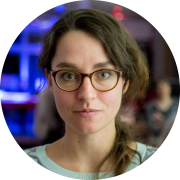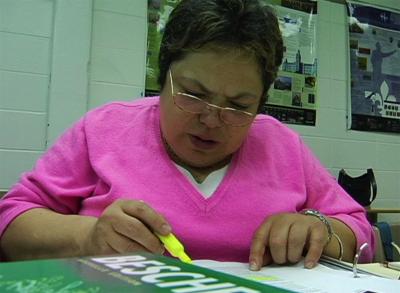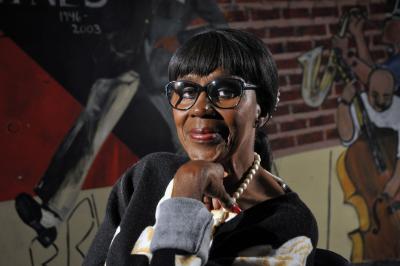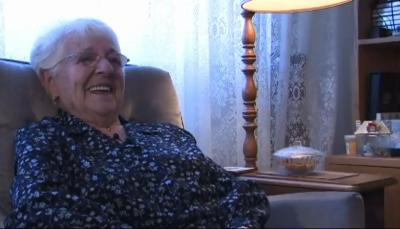When she arrived in Montréal in the early 1970s, Aoura Bizzarri, a skilled knitter, spoke only Italian and knew no one. Twenty years later, she was made Knight of the Ordre national du Québec.
As part of the Women’s Stories of Migration project, the MEM - Centre des mémoires montréalaises met with women who have settled in Montréal from elsewhere to hear about their experiences. Our Stories series maps unique life paths that intersect across the city, shaping its history.
—
what earned her the distinction of Chevalière du Québec in 1990. Of course, there’s more to it than that. The honour paid tribute to her advocacy for immigrant women as cofounder of the Collectif des femmes immigrantes du Québec (Le Collectif), which she has headed since 1983. But her vitality surely proved useful in the trans-Atlantic, cross-border journey that took her from factory knitter to becoming the celebrated champion for change that she is today. In December 2018, the MEM met with Aoura at the offices of Le Collectif to hear her remarkable story.
Made in Italy
Aoura Bizzarri vers 1969
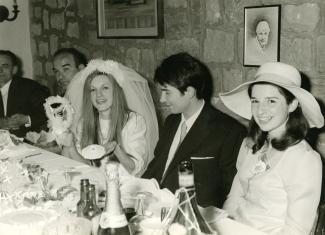
Aoura—who added an “o” to her name, Aura, to make it easier to pronounce—was born in 1946 in Tuscany, one of Italy’s most prosperous regions. Although affected by the Second World War, her home city of Florence recovered rapidly, thanks to its tourism-based economy. And while its rich cultural history as the cradle of Renaissance humanism attracted travelers from all over, it was also a major centre of Italian fashion, haute couture, and craft and mechanical trades. Aoura’s father was a skilled worker, and her mother, like Aoura and her sister, was a knitter who worked at home. In her early twenties, Aoura fell in love with a man who shared her love of adventure, and together they set sail for Canada.
Speaking the language
Aoura Bizzarri en 1976
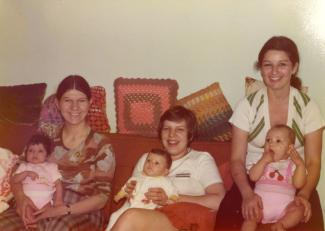
Nonetheless, Aoura wanted to learn French, the majority language in Quebec. In the 1960s and ’70s, Canada and Quebec began introducing measures to support the integration of new immigrants. These included education services such as those offered by the Centres d’orientation et de formation des immigrants (COFIs). Having entered the country as an economic immigrant, Aoura was eligible for subsidized French classes. “But just because you had the right to classes, didn’t mean they gave them to you,” remembers Aoura, who was turned down on the grounds that Italian was sufficient for factory work. This kind of discrimination was not uncommon. The 1970 report of the Bird Commission on the Status of Women in Canada had already brought the issue to light. A number of feminists, among them Madeleine Parent, spoke out against the conditions— including inadequate support for integration and lack of French language training —that relegated immigrant women to difficult and low-wage jobs.
A friend, Johanne, whom Aoura considers as part of her “Quebec family,” was outraged by the language centre’s response and helped Aoura fight for her right to training. Aoura was finally admitted to the class. She found French easy to learn, but above all, she discovered that it “gave her wings.” The experience spurred her to take up one of her defining causes: to this day, she advocates for subsidized French courses for all immigrants, regardless of status, to ensure their integration. “If you don’t speak the language, you’re illiterate. No matter what training or experience you have, if you don’t speak the language, you’re nobody. You can’t do anything.”
Feminism, a logical choice
Aoura Bizzarri
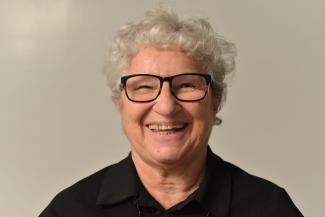
After learning French, Aoura set out to finish high school. She attended classes during the day and worked evenings as an orderly at Hôpital Jean-Talon, while also having the sole care of her three-year old daughter. It was one of the most challenging times of her life. “I gave it my all,” she says, “but it paid off. Every effort you make pays off.” Soon after, she found work at Centro Donne, an Italian women’s centre. There, she gained a greater awareness of the impacts of gender inequality and gradually became involved in feminist activism. “I didn’t decide to become a feminist. It came naturally!” she says. “Why should I have fewer rights than other people? Why should I be inferior? Who, me? I’m not inferior to anyone!”
It proved difficult, however, for immigrant women to make their demands heard by government authorities, the media, and mainstream women’s groups. With other frontline workers, Aoura decided to create an umbrella organization that would give immigrant women a stronger voice and greater opportunities for action. “It wasn’t enough to stand up as an Italian woman, a Greek woman or a Portuguese woman. We had to stand together.” The Collectif des femmes immigrantes du Québec was founded in 1983, with Aoura at the helm.
A distinguished fighter
Aoura Bizzarri - ordre national du Québec
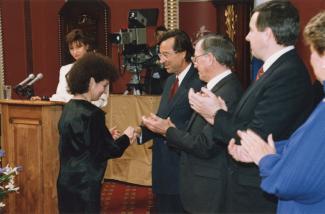
Aoura became a leading voice for the rights of immigrant women. She was fearless. “I don’t back down in the face of anyone,” she says. “If it’s a just cause, why would you?” To this day, she speaks out at every opportunity, on issues ranging from the impact of racial inequities on women to the public perception of immigrants as poorly integrated and anglicized. She has worked alongside key social and political figures in Quebec, including her friend Françoise David, with whom she organized the World March of Women in 2000. Clearly, Aoura has made a lasting mark on Québec history, and her work isn’t over yet!
Article La Presse 29 janvier 2001
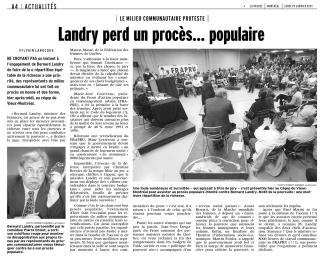
Aoura’s trademark laugh and self-assurance may be her sharpest weapons. A legendary gesture from 2001 is just one example of the humour and straight talk that characterize her public appearances. At the time, she was a “witness” in a symbolic public trial of Bernard Landry, Québec’s then Finance Minister, whom community groups accused of having failed in his highly-publicized “fight against poverty.” In her contribution to this piece of protest theatre, Aoura submitted a half-sandwich topped with nothing but the stem ends of tomatoes as evidence of the poverty experienced by immigrant women and their children.
BIRD, Florence. Rapport de la Commission royale d’enquête sur la situation de la femme au Canada, Ottawa, Commission royale d’enquête sur la situation de la femme au Canada, 1970.
LAROCQUE, Sylvain. « Landry perd un procès… populaire », La Presse, 29 janvier 2001, A4.
LÉVESQUE, Andrée (dir.). Madeleine Parent, Montréal, Remue-ménage, 2003.
LINTEAU, Paul-André, et al. Histoire du Québec contemporain. Le Québec depuis 1930, Montréal, Boréal, 1989, p. 567-593.
